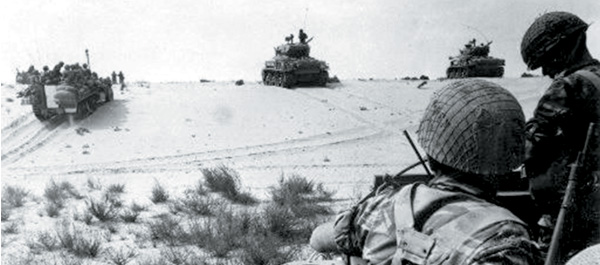Late last month an aggressive Russian combat patrol in Syria collided with a U.S. armored vehicle, leaving seven American troops injured. Now in response, United States Central Command has deployed additional armor and increased fighter jet and drone patrols in the area.
This would add 100 troops to the 500 already there, days after President Trump claimed America was “out of Syria,” except to protect the region’s oil fields.
Both sides have been operating, and clashing, in the same northeast Syrian region for months — the U.S on the side of the Kurdish-led Syrian Democratic Forces, the Russians representing the Syrian government of Bashar al-Assad. While it may seem natural to increase American Forces’ firepower in the region to better defend against Russian engagement as tensions rise, it is actually the worst possible action for our national security.
A quick and full withdrawal of all U.S. troops is what is called for here.
There is no question that deployed U.S. military personnel have the right of self-defense at all times and despite Moscow’s protestations to the contrary, video evidence proves conclusively that the Russians intentionally initiated the recent clash of the two vehicles. It is equally clear, however, that only the admirable discipline and self-restraint of the American combat crews prevented the incident from deteriorating into a potentially fatal shootout. Such an engagement could have led to a confrontation between other U.S. and Russian forces in the region, sparking a major international incident.
It should be a non-negotiable requirement that no American combat troops will ever be sent into harm’s way unless there is a direct and imminent threat to the United States or our interests. The purpose of our military is to defend our country and keep our citizens safe, not to police ungovernable places.
Syria represents the worst possible use of our troops: deploying them into a hostile area in which no direct threats to America exist, and where their presence could inadvertently cause – rather than prevent – an attack on our country. That is precisely the situation in which we find ourselves in Syria today: no threat to national security, nothing to gain, a great deal to lose.
Without abiding by the provisions of the U.S. Constitution, and in violation of the 1973 War Powers Act, President Obama sent U.S. troops into Iraq in 2014 and into Syria in 2015 to fight against the Islamic State. ISIS represented a direct threat to the regimes in Damascus and Baghdad, but only an indirect and negligible threat to our country. Obama claimed no U.S. troops would fight on the ground and would only “assess how we can best train, advise, and support Iraqi security forces.” What he didn’t provide, however, was a clearly articulated military mission. That failure guaranteed the troops could be kept there indefinitely, as there would be no criteria for which to leave.
To his credit, when Trump took office in 2017, he gave the military the mission to rout ISIS from their physical territory in Iraq and Syria. The last shards of ISIS occupation were ousted in March 2019. By all measures, the military mission should have ended then and our troops withdrawn. In October of that year, Trump ordered Secretary of State Mark Esper to withdraw all U.S. troops from Syria. Unfortunately, Trump was reportedly talked out of it by Sen. Lindsey Graham and the troops remain there to this day.
There is a reflexive resistance to even the consideration of withdrawing American troops from any deployment among many of the so-called foreign policy elite in America today. Former National Security Advisor H.R. McMaster, for example, publicly chided Trump following his 2019 order to withdraw (he did it again more recently over Afghanistan). Then-Secretary of Defense James Mattis went so far as to resign from office over Trump’s intent to leave Syria. There is something akin to an addiction among men like these for the deployment of U.S. troops abroad.
The circumstances don’t seem to matter. The absence of attainable military missions doesn’t appear to trouble them unduly. But it does, however, trouble increasing numbers of American voters and U.S. combat veterans.
Last August, a poll commissioned by the Charles Koch Institute found that an amazing 76 percent of Americans favored the withdrawal of U.S. troops from Iraq and Afghanistan. That nearly mirrors a poll conducted last April finding that 70 percent of veterans and their families supported leaving Afghanistan. Sizable majorities of Americans no longer support open-ended military deployments, and those who do the fighting and dying emphatically reject forever-wars. It’s time Washington started listening to both.
Ending forever-wars is not merely a popular issue among many voters, it is a matter of national security. There is virtually nothing to gain from these deployments, but as the recent clash with Russian troops in Syria demonstrates, there is a lot to lose. Imagine if we eventually stumbled into a war against nuclear-armed Russia over an issue unrelated to our security in the trackless deserts of Syria? We need to end this operation immediately, while we still can.






























